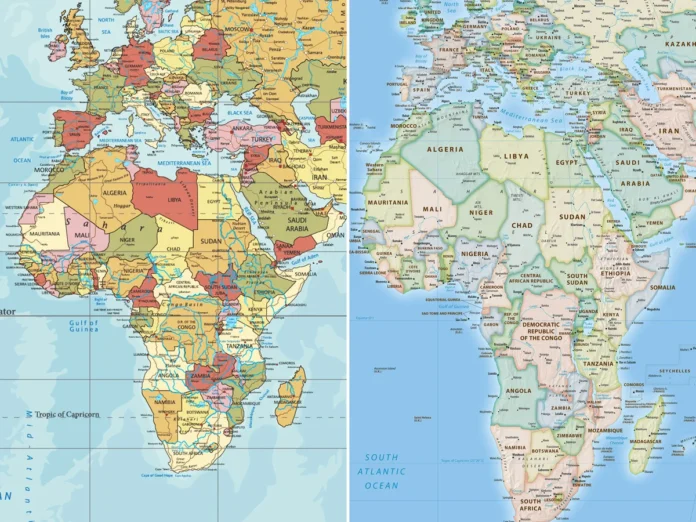African Union Joins Effort to Correct Map Distortions
The African Union (AU) has officially supported the “Correct The Map” campaign, a growing effort to replace the Mercator projection with a more accurate world map. This is the first time the AU has formally endorsed the movement, and it marks an important moment for those calling for Africa to be represented fairly.
The Mercator projection, first made in 1569 by Gerardus Mercator for ship navigation, greatly enlarges regions near the poles and reduces the size of those closer to the equator. Because of this distortion, Greenland is often shown as similar in size to Africa, even though Africa is about 15 times larger. Africa covers over 30 million square kilometers, while Greenland has only about 2.1 million. This inaccurate view has lasted for centuries, shaping how the world sees Africa.
AU Calls the Old Map Misleading

Selma Malika Haddadi, Deputy Chairperson of the AU Commission, explained that this is not just about geography but about identity and fairness. She told Reuters that showing Africa as small and marginal sends the wrong message to the world and even to Africans themselves. The continent is the second-largest in the world, with 54 countries and a population of over one billion people. Yet, many people grow up seeing it shown as smaller than Europe or North America.
This false representation has psychological and political effects. It makes Africa seem weaker and less important, which can influence global discussions on trade, economics, and culture.
Correct The Map Campaign Pushes Equal Earth Projection
The campaign, led by advocacy groups such as Africa No Filter and Speak Up Africa, promotes the Equal Earth projection. This projection was introduced in 2018 as a fairer alternative, showing land masses in proportion to their true size.
Moky Makura, executive director of Africa No Filter, called the Mercator projection “the world’s longest misinformation campaign.” She said it is time to stop teaching children maps that shrink their own continent.
Fara Ndiaye, co-founder of Speak Up Africa, explained that maps are not neutral tools. They shape how children view the world and their place in it. For that reason, her group is working to introduce the Equal Earth projection into African schools.
Institutions Begin to Move Away From Mercator

Some major organizations have already started using new projections. The World Bank uses Equal Earth for static maps and is removing Mercator from its online platforms. Google Maps introduced a 3D globe view for desktops in 2018, though the mobile version still uses Mercator.
The AU has announced that it will push its 55 member states to adopt more accurate maps in schools and government offices. The endorsement connects with the union’s broader aim of reshaping Africa’s role in the world and rejecting ideas that come from colonial times.
Personal Analysis
I think this move goes beyond cartography. Maps are not just tools for navigation, they are also instruments of power. When Africa is shown as smaller, it subtly teaches the world that Africa matters less. This affects how people think about investment, cooperation, and even history. By supporting the campaign, the AU is not only correcting a distortion but also taking back part of Africa’s story.
Changing the map will not fix all issues, but it is a symbolic and practical step that can help people everywhere see Africa as it really is. In my view, education is where the biggest change will happen. If children grow up learning from maps that respect reality, they may also grow up with a stronger sense of confidence about their continent.
Sources: africanews.com

